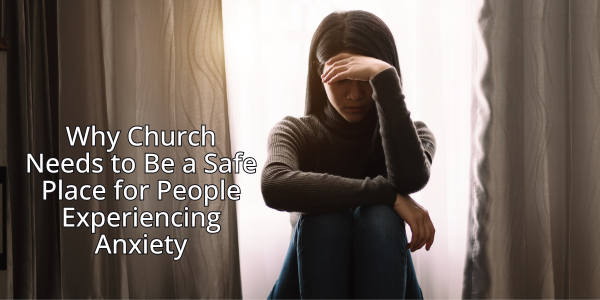by Bob D’Ambrosio
Anxiety. It affects today’s teens, adults, and children. And with the increase in mental health awareness in our society, more people are seeking the help of a counselor. People are recognizing their anxiety and asking for help. According to Eleanor Muir, director of Messiah College’s Engle Center for Counseling and Health Services who has worked with college students for 35 years, a new issue has surfaced: making students wait for counseling services. The Pennsylvania faith-based college exceeded its capacity for counseling students and began a waiting list in September for the 2017-2018 school year.
What’s the biggest fear facing students? “It’s anxiety, by far anxiety,” said Muir, a licensed professional counselor. “A full three-quarters of students we see as clients have anxiety as a significant or the most serious presenting problem.”
And stress is not just affecting students. Adults feel it now, too. The American Psychological Association’s annual Stress in America survey examines stress and its effect on people’s health and well-being. Since conducting their first survey a little over 10 years ago, the APA saw overall stress levels gradually decrease. However, an additional poll in 2017 revealed a significant spike in stress and anxiety, especially pertaining to personal safety.
Even our kids are dealing with stress. When field-testing Shipwrecked VBS, the team at Group Publishing discovered that kids today also experience anxiety. In addition to school worries and friendship stress, kids repeatedly talked about worries and fears as related to their families. More than ever, kids need to know that Jesus rescues! Worries may not magically disappear, but Jesus surrounds us with his love and peace to carry us through life’s storms.
So how can your church be a rescuing place for children, youth, and adults who are dealing with anxiety?
1. Provide opportunities to acknowledge anxious feelings. Care ministry is more vital today than ever before. Does your church offer venues for dealing with stress? The Engle Center staff started a weekly anxiety management group. “It’s a skill-building group,” Muir said. “They train in cognitive responses to anxiety as well as specific behavioral skills such as relaxation and mindfulness.”
2. Allow time for relational ministry. The church is the one place where people can support and encourage each other through life’s storms. But if our Bible classes, volunteer ministry teams, and worship services aren’t helping people grow relationally—with each other and with God—we’re missing the goal. Relational ministry goes beyond the “Hi, how’re you?” exercise. It’s a deeper level of connection where we become authentic, share each other’s burdens, and understand that we’re all in this together. Belonging comes before believing.
3. Keep ministry Jesus-centered. Jesus wanted his disciples to connect with his heart, not knowledge-based facts about his life. His relational leadership style developed trust and loyalty so his followers would be able to “Give all your worries and cares to God, for he cares about you” (1 Peter 5:7).
People today are anxious. The people in your church are anxious. Ministering to this need might be a fresh, new approach in our efforts and methodologies to making disciples.



